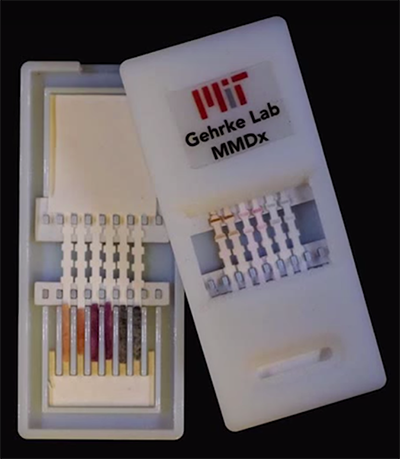 At the 250th National Meeting & Exposition of the American Chemical Society this week, researchers from MIT, Harvard Med School, and the FDA are showing off a new field test that can quickly screen people for Ebola, yellow fever, and dengue. While the researchers don’t claim their technique to be as accurate as PCR and ELISA, it is nevertheless an excellent tool in poor areas of the world where these diseases tend to thrive.
At the 250th National Meeting & Exposition of the American Chemical Society this week, researchers from MIT, Harvard Med School, and the FDA are showing off a new field test that can quickly screen people for Ebola, yellow fever, and dengue. While the researchers don’t claim their technique to be as accurate as PCR and ELISA, it is nevertheless an excellent tool in poor areas of the world where these diseases tend to thrive.
The test doesn’t require any water or electricity nor any complicated and expensive equipment. It works similar to pregnancy tests, providing a color readout that signals whether a disease is detected that is easily readable by just about anyone.
The technology relies on silver nanoparticles produced to be of different sizes. Each nanoparticle size reflects light of different frequency, having a particular color when looked at with the naked eye. These silver nanoparticles are attached to antibodies that stick to proteins associated with Ebola, yellow fever, and dengue. A special paper strip is then used to mix the nanoparticle-antibody compounds with samples of patient blood. When a antibody meets a protein it likes, the two snap together and move down the paper strip. Another antibody that sticks to the same protein waits further down the strip. When it does attach to the complex, the whole becomes too large to travel any further down the strip. This is evident by seeing a specific color appear and stay on the test strip, which indicates the presence of a specific disease.
The team behind the test is now working on distributing the test freely in regions where it would have the most benefit. Moreover, they want to help locals build their own test kits that they can distribute quickly as needed.
Here’s an American Chemical Society report on the new technology:
Source: American Chemical Society…
The post Cheap Paper Test to Screen Patients for Ebola, Yellow Fever, Dengue (VIDEO) appeared first on Medgadget.
